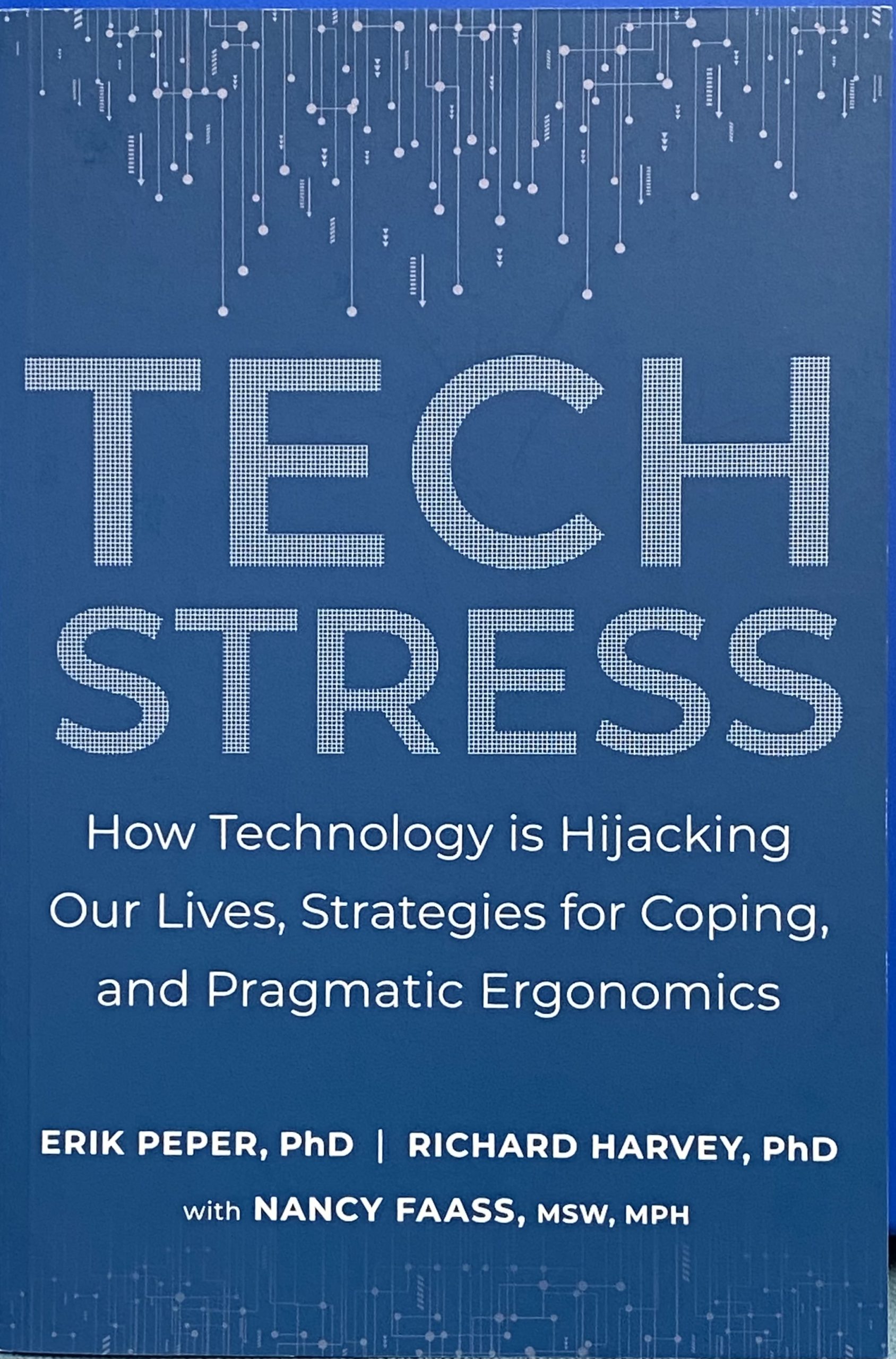Any book that gives me more sleep is a winner in my opinion. Ok, that’s perhaps overly-paring down the content of Tech Stress, but my goodness it’s a full book. The authors have gone all-out to create a one-stop-shop answer to our tech addiction and the impact that it has on our wellbeing. And, unlike so many books that cross my desk, more effort has gone into describing solutions, rather than articulating the problems.
The book’s premise is simple and profound – fixing the physical, mental, social and relational problems that technology creates within a species that hasn’t yet evolved the coping mechanisms to manage our access to social media, digital content, connection and communication. And fix it does. Whilst messages of preventative medicine are rife, so too are practical tips on healing after injury and overload – Erik Peper and Richard Harvey are both clearly well versed in dealing with the fall-out of tech stress, and their remedies spread the range of disciplines and draw on mainstream and alternative therapies for solutions.
You may be of the opinion that ‘you’ve got tech under control’ – but one read of this book will change your mind radically. Anyone with access to a data connection should have a copy of this tome to hand. Both to avoid going too far down the rabbit hole, and to recover from the inevitable ‘bumps and scrapes’ as we fail to do so. In the authors’ terms, we’ve been caught in an evolutionary trap (more than one actually) whereby technology enables and fuels our desire to sit, to digest social content and to enjoy the chemical rush of social praise and connection. Effectively, tech is akin to sugar – we crave both, and binge on an over-abundance when there should be scarcity.
Whilst not the biggest fan of technology, the book avoids fully demonising it – the overall message isn’t ‘don’t’ it’s ‘do, but with care’. And Peper and Harvey have included a mix of strategies that will help people balance the need and requirement to connect, with the equally vital disconnection and recharge. For them, it’s about life, and how it all fits together, encouraging people to integrate technology in ways that make sense – online at the right time, and fully present when those around us really need it.
Yes, some of the advice is a little out there (I’m not going to add animal ‘organ meat’ to my diet) but there is SO much of it that you cannot fail to find some nuggets within the book that help you swim through, not drown in the digital world. In fact, the advice is probably the most comprehensive I’ve ever seen – there are even pictures of how to sit (or not). This may seem simplistic, but I immediately lost my slouch when I studied the theory for five minutes – my back thanks the authors.
The penultimate section was short, but sobering. Put bluntly, we are teaching our children lifelong habits around technology that will lead them to being desensitised, unhealthy, socially isolated individuals. And it’s a small step to apply that thinking to our workforces – as people professionals we have an acute responsibility to ensure our workforce balances tech and a wider, healthy life. Now, more than ever.
Published by North Atlantic Books
Chris Preston is a culture expert and one of the founding partners of The Culture Builders







